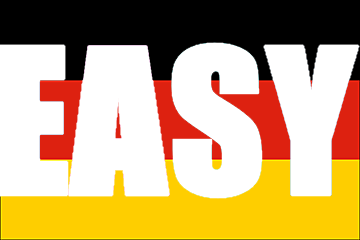| ICFCY-Code | Title | Description |

|
b114
|
Orientation functions |
General mental functions of knowing and ascertaining one's relation to object, to self, to others, to time and to one's surroundings and space. |

|
b1144
|
Orientation to space |
Mental functions that produce awareness of one's body in relationship to the immediate physical space. |

|
b125
|
Dispositions and intra-personal functions |
Disposition to act or react in a particular way, characterizing the personal, behavioural style of an individual that is distinct from others. These behavioural and responses styles are developmental in nature and may be foundational for later patterns of temperament and personality functions. Remark: The codes on Dispositions and Intra-personal functions can be related to the codes on expression of Temperament and Personality functions (b126). Users may use either or both. The taxonomic properties of these codes and their relationship need to
be developed through research. |

|
b126
|
Temperament and personality functions |
General mental functions of constitutional disposition of the individual to react in a particular way to situations, including the set of mental characteristics that makes the individual distinct from others. Remark: The codes on Temperament and Personality functions can be related to the codes on expression of Dispositions and Intra-personal functions (b125). Users may use either or both. The taxonomic properties of these codes and their relationship need to be developed through research.
|

|
b1565
|
Visuospatial perception |
Mental function involved in distinguishing by sight the relative position of objects in the environment or in relation to oneself. |

|
d6603
|
Assisting others in interpersonal relations |
Assisting household members and others with their interpersonal interactions, such as by helping them to initiate, maintain or terminate relationships. |

|
d6606
|
Helping in assisting others |
Helping in the provision of assistance to household members and others with self-care, communication, movement, interpersonal relations, nutrition and health maintenance, with someone else in charge. |
|
|
d7
|
CHAPTER 7 INTERPERSONAL INTERACTIONS AND RELATIONSHIPS |
This chapter is about carrying out the actions and tasks required for basic and complex interactions with people (strangers, friends, relatives, family members and lovers) in a contextually and socially appropriate manner. |

|
d7100
|
Respect and warmth in relationships |
Showing and responding to concerns, sympathy, consideration and esteem in a contextually and socially appropriate manner. |

|
d7101
|
Appreciation in relationships |
Showing and responding to satisfaction and gratitude in a contextually and socially appropriate manner. |

|
d7102
|
Tolerance in relationships |
Showing and responding to understanding and acceptance of behaviour in a contextually and socially appropriate manner. |

|
d7103
|
Criticism in relationships |
Providing and responding to implicit and explicit differences of opinion or disagreement in a contextually and socially appropriate manner. |

|
d7104
|
Social cues in relationships |
Giving and reacting appropriately to signs and hints that occur in social interactions. |

|
d71048
|
Social cues in relationships, other specified |
|

|
d71049
|
Social cues in relationships, unspecified |
|

|
d7105
|
Physical contact in relationships |
Making and responding to bodily contact with others, in a contextually and socially appropriate manner. |

|
d7200
|
Forming relationships |
Beginning and maintaining interactions with others for a short or long period of time, in a contextually and socially appropriate manner, such as by introducing oneself, finding and establishing friendships and professional relationships, starting a relationship that may become permanent, romantic or intimate. |

|
d7201
|
Terminating relationships |
Bringing interactions to a close in a contextually and socially appropriate manner, such as by ending temporary relationships at the end of a visit, ending long-term relationships with friends when moving to a new town or ending relationships with work colleagues, professional colleagues and service providers, and ending romantic or intimate relationships. |
|
|
|
Particular interpersonal relationships (d730-d779) |
|

|
d740
|
Formal relationships |
Creating and maintaining specific relationships in formal settings, such as with teachers, employers, professionals or service providers. |

|
d7400
|
Relating with persons in authority |
Creating and maintaining formal relations with people in positions of power or of a higher rank or prestige relative to one's own social position, such as an employer. |

|
d7401
|
Relating with subordinates |
Creating and maintaining formal relations with people in positions of lower rank or prestige relative to one's own social position, such as an employee or servant. |

|
d7402
|
Relating with equals |
Creating and maintaining formal relations with people in the same position of authority, rank or prestige relative to one's own social position. |

|
d7408
|
Formal relationships, other specified |
|

|
d7409
|
Formal relationships, unspecified |
|

|
d750
|
Informal social relationships |
Entering into relationships with others, such as casual relationships with people living in the same community or residence, or with co-workers, students, playmates or people with similar backgrounds or professions. |

|
d7500
|
Informal relationships with friends |
Creating and maintaining friendship relationships that are characterized by mutual esteem and common interests. |

|
d7501
|
Informal relationships with neighbours |
Creating and maintaining informal relationships with people who live in nearby dwellings or living areas. |

|
d7502
|
Informal relationships with acquaintances |
Creating and maintaining informal relationships with people whom one knows but who are not close friends. |

|
d7503
|
Informal relationships with co-inhabitants |
Creating and maintaining informal relationships with people who are co-inhabitants of a house or other dwelling, privately or publicly run, for any purpose. |

|
d7504
|
Informal relationships with peers |
Creating and maintaining informal relationships with people who share the same age, interest or other common feature. |

|
d7508
|
Informal social relationships, other specified |
|

|
d7509
|
Informal social relationships, unspecified |
|

|
d760
|
Family relationships |
Creating and maintaining kinship relationships, such as with members of the nuclear family, extended family, foster and adopted family and step-relationships, more distant relationships such as second cousins, or legal guardians. |

|
d7600
|
Parent-child relationships |
Becoming and being a parent, both natural and adoptive, such as by having a child and relating to it as a parent or creating and maintaining a parental relationship with an adoptive child, and providing physical, intellectual and emotional nurture to one's natural or adoptive child. |

|
d7601
|
Child-parent relationships |
Creating and maintaining relationships with one's parent, such as a young child obeying his or her parents or an adult child taking care of his or her elderly parents. |

|
d7602
|
Sibling relationships |
Creating and maintaining a brotherly or sisterly relationship with a person who shares one or both parents by birth, adoption or marriage. |

|
d7603
|
Extended family relationships |
Creating and maintaining a family relationship with members of one's extended family, such as with cousins, aunts and uncles and grandparents. |

|
d7608
|
Family relationships, other specified |
|

|
d7609
|
Family relationships, unspecified |
|

|
d770
|
Intimate relationships |
Creating and maintaining close or romantic relationships between individuals, such as husband and wife, lovers or sexual partners. |

|
d7700
|
Romantic relationships |
Creating and maintaining a relationship based on emotional and physical attraction, potentially leading to long-term intimate relationships. |

|
d7701
|
Spousal relationships |
Creating and maintaining an intimate relationship of a legal nature with another person, such as in a legal marriage, including becoming and being a legally married wife or husband or an unmarried spouse. |

|
d7702
|
Sexual relationships |
Creating and maintaining a relationship of a sexual nature, with a spouse or other partner. |

|
d7708
|
Intimate relationships, other specified |
|

|
d7709
|
Intimate relationships, unspecified |
|

|
d779
|
Particular interpersonal relationships, other specified and unspecified |
|

|
d798
|
Interpersonal interactions and relationships, other specified |
|

|
d799
|
Interpersonal interactions and relationships, unspecified |
|

|
d8500
|
Self-employment |
Engaging in remunerative work sought or generated by the individual, or contracted from others without a formal employment relationship, such as migratory agricultural work, working as a free-lance writer or consultant, short-term contract work, working as an artist or crafts person, owning and running a shop or other business. |

|
e2451
|
Lunar cycles |
Natural, regular and predictable changes of the moon's position in relation to the earth. |
|
|
e3
|
CHAPTER 3 SUPPORT AND RELATIONSHIPS |
This chapter is about people or animals that provide practical physical or emotional support, nurturing, protection, assistance and relationships to other persons, in their home, place of work, school or at play or in other aspects of their daily activities. The chapter does not encompass the attitudes of the person or people that are providing the support. The environmental factor being described is not the person or animal, but the amount of physical and emotional support the person or animal provides. |

|
e310
|
Immediate family |
Individuals related by birth, marriage or other relationship recognized by the culture as immediate family, such as spouses, partners, parents, siblings, children, foster parents, adoptive parents and grandparents. |

|
e315
|
Extended family |
Individuals related through family or marriage or other relationships recognized by the culture as extended family, such as aunts, uncles, nephews and nieces. |

|
e320
|
Friends |
Individuals who are close and ongoing participants in relationships characterized by trust and mutual support. |

|
e345
|
Strangers |
Individuals who are unfamiliar and unrelated, or those who have not yet established a relationship or association, including persons unknown to the individual but who are sharing a life situation with them, such as substitute teachers co-workers or care providers. |

|
e398
|
Support and relationships, other specified |
|

|
e399
|
Support and relationships, unspecified |
|
|
|
e4
|
CHAPTER 4 ATTITUDES |
This chapter is about the attitudes that are the observable consequences of customs, practices, ideologies, values, norms, factual beliefs and religious beliefs. These attitudes influence individual behaviour and social life at all levels, from interpersonal relationships and community associations to political, economic and legal structures; for example, individual or societal attitudes about a person's trustworthiness and value as a human being that may motivate positive, honorific practices or negative and discriminatory practices (e.g. stigmatizing, stereotyping and marginalizing or neglect of the person).
The attitudes classified are those of people external to the person whose situation is being described. They are not those of the person themselves.
The individual attitudes are categorized according to the kinds of relationships listed in Environmental Factors Chapter 3. Values and beliefs are not coded separately from the attitudes as they are assumed to be the driving forces behind the attitudes. |

|
e5551
|
Associations and organizational systems |
Administrative control and monitoring mechanisms that govern the relationships and activities of people coming together with common noncommercial interests and the establishment and conduct of associations and organizations such as mutual aid organizations, recreational and leisure organizations, cultural and religious associations and not-for-profit organizations. |

|
e5552
|
Associations and organizational policies |
Legislation, regulations and standards that govern the relationships and activities of people coming together with common noncommercial interests, such as policies that govern the establishment and conduct of associations and organizations, including mutual aid organizations, recreational and leisure organizations, cultural and religious associations and not-for-profit organizations. |

|
e5900
|
Labour and employment services |
Services and programmes provided by local, regional or national governments, or private organizations to find suitable work for persons who are unemployed or looking for different work, or to support individuals already employed, such as services of employment search and preparation, reemployment, job placement, outplacement, vocational follow-up, occupational health and safety services, and work environment services (e.g. ergonomics, human resources and personnel management services, labour relations services, professional association services), including those who provide these services. |





 =Select (and add) this code
=Select (and add) this code  Click on a code to expand the branch
Click on a code to expand the branch 


































































